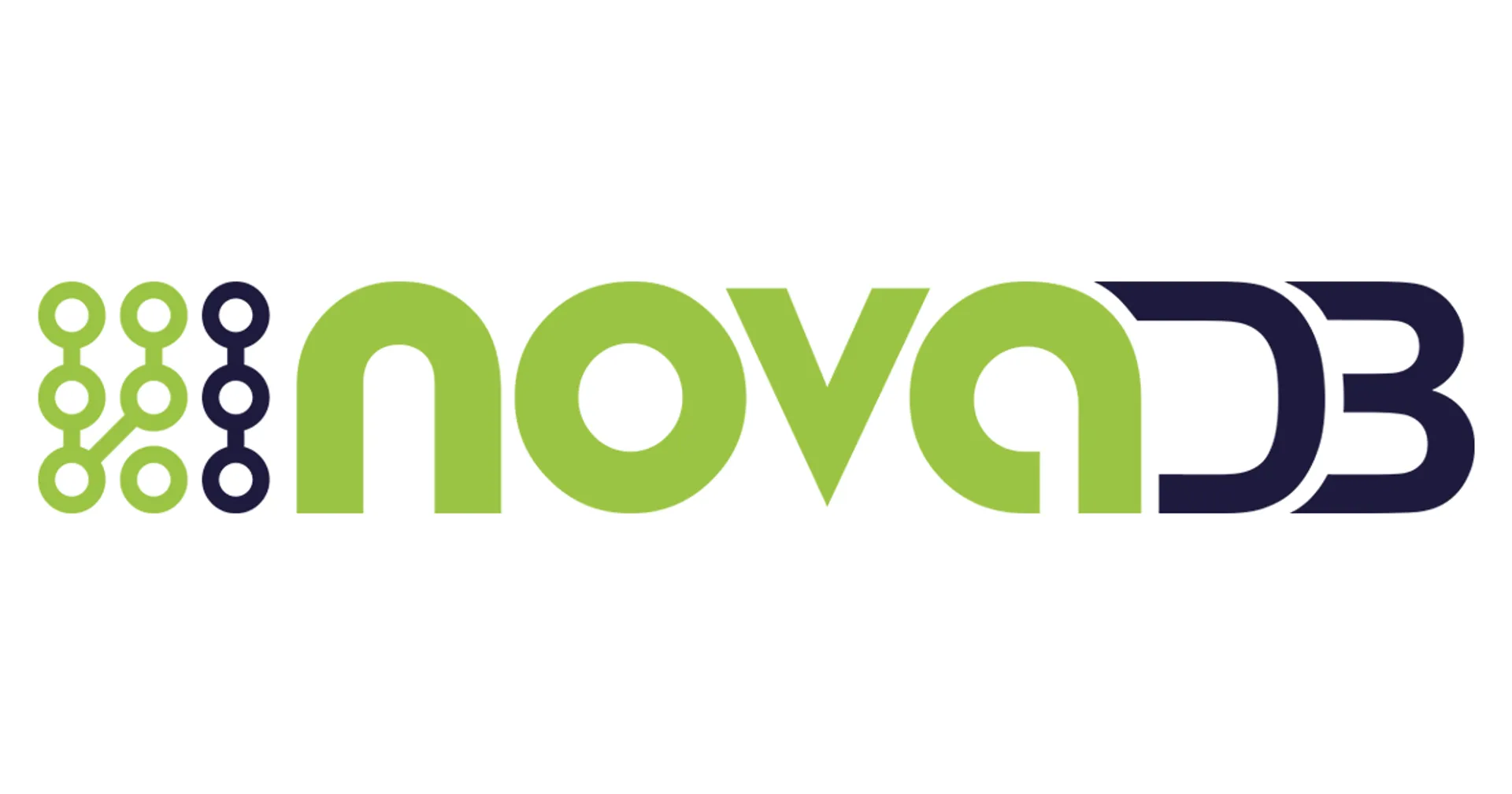How AI Redefines Product Information Management
Managing product information today extends far beyond simple cataloging. The modern marketplace requires businesses to ensure their product data is accurate, up-to-date, and seamlessly distributed across multiple platforms and touchpoints to meet market demands. AI is fundamentally changing how companies handle this critical task. By integrating Artificial Intelligence (AI) into Product Information Management (PIM) systems, organizations can enhance accuracy, speed, and personalization while reducing errors and manual workloads. AI-driven PIM solutions are offering more than just automation; they’re enhancing customer experiences and streamlining operations at a scale that was previously unthinkable.
Let’s explore the growing role of AI in PIM, its key benefits, industry-specific use cases, and how businesses can get started with AI-driven solutions like NovaDB PIM.
Use of AI in Product Information Management
AI is fundamentally transforming product information management by automating time-consuming tasks and improving data accuracy across multiple platforms. Below are the various ways AI is transforming PIM:
Automating Data Entry and Categorization
Manual product data entry is traditionally time-consuming and prone to errors. AI systems leverage natural language processing and machine learning to automate the categorization and entry of product data. By analyzing attributes and content such as product descriptions, dimensions, and features, AI can assign the correct categories, fill in missing data, and enhance the overall accuracy of the product record.
For example, an AI system can instantly scan thousands of products and categorize them according to predefined rules. This automation ensures faster onboarding for new products, improving time-to-market.

Enhancing Data Quality and Consistency
The quality and consistency of product information directly impact customer experience and operational efficiency. AI can identify discrepancies, duplicate entries, or missing information in product catalogs. It ensures that core product data remains uniform across multiple channels while allowing for personalized recommendations and tailored customer experiences. By applying machine learning algorithms, AI continuously learns from past data while applying quality checks to identify potential errors before they affect the user experience.
For example, AI tools can track changes in product details, ensuring that prices, descriptions, and images are consistent across all touchpoints, including websites, marketplaces, and e-commerce platforms.
.png)
Content Enrichment
AI can also enhance product descriptions, making them more relevant and engaging. AI analyzes customer behavior, market trends, and competitor data to optimize product content for SEO, improving visibility and search engine rankings. AI can generate automated, SEO-optimized product descriptions, enhanced images, and dynamic content tailored to specific customer needs. This can include dynamically generated product descriptions, images, and videos that resonate with customers.
For example, AI can analyze social media sentiment and customer reviews to fine-tune product descriptions, improving their accuracy and appeal to potential buyers.

Personalization of Product Recommendations
AI-powered PIM systems go beyond managing product data – they enable businesses to deliver personalized experiences to their customers. By analyzing user behavior, AI can provide personalized product recommendations based on past purchases, and preferences. This leads to more relevant suggestions and helps customers find products that best meet their needs.
For example, e-commerce platforms use AI to recommend complementary products in real-time, significantly enhancing customer satisfaction and increasing sales.
.png)
Automating Price Adjustments
AI helps businesses stay competitive by automating pricing strategies in real-time, considering factors such as competitor prices, demand fluctuations, and market conditions. While dynamic pricing has existed for decades through traditional rule-based algorithms and yield management systems—commonly used in travel, hospitality, and e-commerce—AI significantly enhances this process. Unlike static rules, AI systems can analyze vast amounts of real-time data, including competitor prices, customer behavior, and external factors like seasonality, to suggest optimal pricing strategies. This allows businesses to react more efficiently to market changes, optimizing profitability while minimizing manual intervention.

Key Benefits of AI-Powered PIM Solutions
Integrating AI into Product Information Management offers numerous advantages that make business operations more efficient and streamlined. Let’s take a closer look at the key benefits of AI-powered PIM solutions:
Increased Efficiency and Reduced Time-to-Market
AI significantly reduces the time spent on manual processes such as data entry, categorization, and content creation. By automating these tasks, businesses can reduce time-to-market for new products, ensuring that products are launched quickly and efficiently. AI allows businesses to scale and adapt to changes in demand without sacrificing the quality or speed of their product data updates.
Improved Data Accuracy and Consistency
AI enhances data quality by identifying discrepancies and inaccuracies in real-time. It ensures that product data is consistent across various channels, reducing the risk of errors or outdated information. This improves the customer experience by ensuring that product information is accurate, which in turn builds trust and reduces the likelihood of returns or customer complaints.
Enhanced Personalization and Customer Engagement
AI’s ability to deliver personalized recommendations creates an engaging customer experience. By analyzing customer behavior and preferences, AI can provide tailored product suggestions that increase the likelihood of conversions. Personalized experiences drive customer loyalty and can boost sales, making AI-powered PIM a valuable tool for fostering long-term customer relationships.
Improved Scalability and Flexibility
AI-powered PIM systems can easily scale with a business’s growth. As product catalogs expand, AI algorithms can continue managing increasing amounts of data without sacrificing accuracy or performance. Businesses can integrate new data sources, add more products, and expand to new markets without facing the typical challenges of managing large-scale data manually.
Cost Savings
By automating repetitive tasks, AI reduces the need for manual labor, resulting in significant cost savings. AI helps optimize pricing strategies and improve operational workflows, eliminating inefficiencies that would otherwise incur extra expenses. Furthermore, AI enhances forecasting capabilities, enabling businesses to make data-driven decisions that can reduce waste and increase profitability.
AI Use Cases in PIM Across Industries
AI is transforming Product Information Management across various industries. Each sector has unique needs and AI helps streamline workflows in ways that provide targeted benefits.
Retail and E-Commerce
In the retail industry, where large catalogs of products are constantly updated, AI-powered PIM systems help businesses manage product data across multiple platforms. AI enhances product descriptions, improves search rankings through SEO, and recommends complementary products based on user preferences. AI-driven solutions ensure that product information remains accurate, up-to-date, and accessible across all customer touchpoints, driving conversions and improving customer satisfaction.
Manufacturing
Manufacturers utilize AI to manage complex product specifications, assembly instructions, and technical data. AI-powered PIM solutions help automate product catalog creation, ensuring that specifications and compliance documents are consistent and up-to-date. This is especially critical for industries where precision and adherence to regulatory standards are essential. AI can also assist in tracking and managing product changes across the supply chain, enhancing overall efficiency.
Automotive
In the automotive industry, PIM systems are used to manage a wide range of product data related to vehicle models, spare parts, and accessories. AI automates the categorization and classification of thousands of different parts, ensuring accurate data for each product. AI can also improve customer experiences by recommending the right parts based on car model compatibility and customer preferences, enhancing customer engagement.
How to Get Started with AI in Your PIM System
Implementing AI in your PIM system can bring tremendous value, but to fully capitalize on the technology, it’s essential to follow a structured approach. Below are the key steps for integrating AI into your PIM system:
Evaluate Your Current PIM Needs
Start by assessing your current PIM system to identify areas where AI can deliver the most impact—such as automating data entry, enhancing product content, or enabling personalized recommendationsUnderstanding your business’s unique needs will help you choose the right AI tools and solutions.
Select the Right AI-Powered PIM Solution
Choose a PIM system that seamlessly integrates AI capabilities. NovaDB PIM is a prime example of an AI-driven solution, offering features such as text generation, translation, and keyword extraction. At the same time, it remains open to evolving requirements. Therefore, it is crucial to choose a system that is flexible and capable of adapting to new demands efficiently.

Train Your Team
Implementing AI in PIM requires your team to adapt to new systems and processes. Provide training to ensure that your employees are well-versed in how AI tools work and how to use them effectively. This will help maximize the ROI of your AI-powered PIM system.
Monitor and Optimize Performance
Once you have integrated AI into your PIM system, monitor its performance. Analyze key metrics such as sales, customer engagement, and time-to-market. Use these insights to refine your AI strategies and make data-driven decisions to continuously improve your PIM processes.
Conclusion
The adoption of AI in Product Information Management is fundamentally transforming how businesses manage, update, and distribute product data. AI automates repetitive tasks, enhances product descriptions, provides personalized recommendations, and ensures data accuracy—leading to greater efficiency, reduced costs, and an improved customer experience.
Yet, despite AI’s transformative potential, human expertise remains irreplaceable. While AI excels at processing vast amounts of data and identifying patterns, it lacks creativity, emotional intelligence, and the ability to make nuanced decisions in complex business contexts. Successful product information management goes beyond automation—it requires strategic thinking, brand storytelling, and a deep understanding of customer needs.
AI serves as a powerful enabler, taking over time-consuming routine tasks so professionals can focus on higher-value activities: crafting compelling product narratives, refining customer experiences, and driving innovation. Instead of replacing human expertise, AI amplifies it—allowing businesses to operate more efficiently while preserving the critical human touch that fosters trust, differentiation, and long-term success.
If you are looking to integrate AI into your PIM system, solutions like NovaDB PIM can help you strike the perfect balance between automation and human intelligence, ensuring your product information is not only efficient but also meaningful and customer-centric. In today’s digital marketplace, leveraging AI isn’t just an advantage—it’s a necessity for staying competitive while keeping people at the core of your business.
